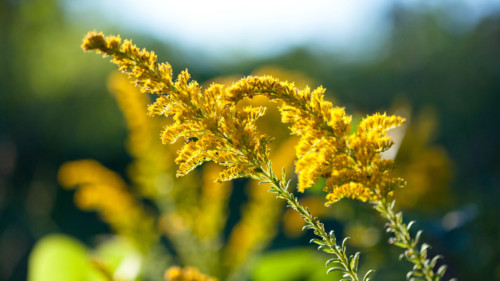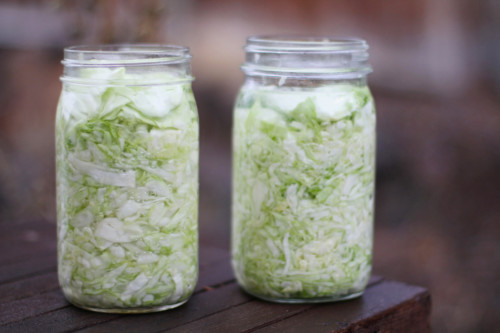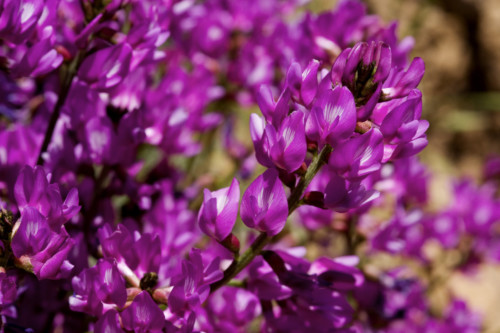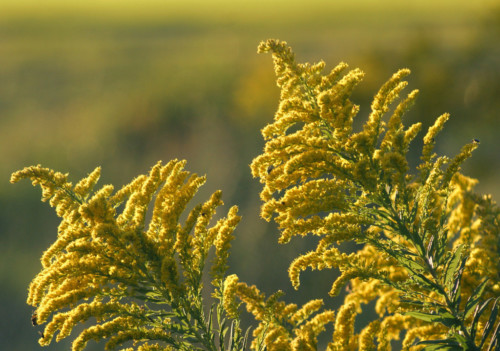An Herbal Guide To Seasonal Allergy Survival
If your pockets are filled with tissues and antihistamines, its likely you are one of the 50 million seasonal allergy sufferers that live in the United States. The spring pollen flurry sends most to the pharmacy for hopeful resolution to watery eyes, itchy throat, sneezing, and other respiratory issues, but while a conventional approach will diminish the symptoms, over-the-counter medications often offer little resolution to the core issues that cause allergy symptoms to begin with.
The inflammatory response that manifests as allergies for some, but has no affect on others, is directly related to what herbalists refer to as, “bad blood”**. A phrase that originates from both the American Indian and European Herbal tradition, “bad blood” was used to describe the body’s ability to eliminate and process built-up waste. Poor nutrition, impaired immune response, and environmental toxins affect efficient metabolism, ultimately putting stress on the system and causing inflammation and weakened adrenal function. Genetics and compromised organ health may also play their part***, but reducing chemical irritants, cutting back on sugar and processed foods, and improving general digestive function are key areas of focus for any holistic practitioner.
If there are gastrointestinal symptoms, such as burping, bloating, or gas, then adding bitter foods to the diet, like dandelion greens and endive, will be helpful. Additionally, taking a few drops of herbal bitters **** before each meal will support the process further. [easyazon_link identifier=”B003YJ8QBO” locale=”US” tag=”gardcoll03-20″]Urban Moonshine[/easyazon_link] offers a range of bitters for sale in most organic stores, and their [easyazon_link identifier=”B003YJ8QBO” locale=”US” tag=”gardcoll03-20″]Original blend[/easyazon_link] is particularly useful as it contains gentian, which has a specific affinity for allergy relief. [easyazon_link identifier=”B000I4DGGI” locale=”US” tag=”gardcoll03-20″]Gentian[/easyazon_link], gentiana lutea, can also be taken as a single extract, but if you are not used to the flavor of bitters, it will be quite a shock to the system! (The recommended dose is 15 drops, three times per day.)
Probiotics + Immune Boosters
Adding probiotic foods to the diet will not only support healthy digestion but also enhance immune function. A condiment size portion of sauerkraut or kimchi at each meal is all that is needed. ( ) Prebiotic foods such as asparagus, beets, Jerusalem artichoke, and burdock root ( )) will create a healthy environment for the probiotic bacteria to flourish, so that your gut is happy.
Herbs such as astragalus, reishi (ganoderma), and shiitake (lentinula edodes) excel at enhancing your body’s long-term immunity, so that you are less susceptible to allergies in the first place. These herbs show their benefits over time. If taken three months before the allergy season starts, susceptibility to allergic response will be greatly reduced. (One drawback from using these herbs is that they need extended cooking time.)
Immune-Boosting Broth
Ingredients
- 10g of Astragalus slices
10g of Shiitake or Reishi ()))
Method
- Simmer the above in a covered pot for 2 hours in 1- 11/2 quarts of water.
- Sip throughout the day or make larger quantities and store in the fridge for up to 5 days.
Supplemental Support
As an alternative to simmering your herbs, you can take mushroom capsules and astragalus granules. Host Defense make excellent medicinal mushroom supplements, offering a variety of combinations. Try their [easyazon_link identifier=”B00WGRNWKA” locale=”US” tag=”gardcoll03-20″]reishi blend[/easyazon_link]; one capsule, twice daily. For the astragalus, you can source prepared herbal granules, which have been pre-cooked, from Kamwo Herbs. (You will find astragalus, referred to by its Chinese name, Huang Qi.) Take 1g three time per day dissolved in a mug of boiled water.
Herbs For Immediate Support
If you are currently suffering from allergies then you will be more interested in immediate support and for that there are several herbs. The first is goldenrod, soladago canadensis. Rich in flavonoids (a form of antioxidant), this herb can provide relief to red eyes and a runny nose quite soon after the first dose. Taken as a tea or in tincture form, you can enhance its affects by adding some local raw “zip code” honey. As the name suggests, the pollen gathered by the bees is from many of the same flowers causing your allergies. This honey can reduce your body’s allergic response and works best if taken over time.
Goldenrod Tea
Ingredients
- 1 Teaspoon of dried goldenrod per 8-oz cup of water
Method
- Steep in a covered mug for at least 20 minutes. Drink a three times per day, as needed.
Goldenrod Tincture
15 drops three times per day, as needed.
Another anti-allergy favorite is stinging nettle. Urtica Dioca is just starting to appear locally in farmers markets in NYC. Strongly antihistamine, and astringent to leaky sinuses, this vitamin-rich tea is delicious. Prepare in the same way as for the goldenrod tea, but add a splash of raw apple cider vinegar and steep overnight. This will enhance the mineral extraction. If the tea-making practice is not likely to happen, then a supplement is the best substitute and the Ecclectic Institution makes a great version that combines [easyazon_link identifier=”B006H9RWTU” locale=”US” tag=”gardcoll03-20″]stinging nettle with quercetin[/easyazon_link] (another flavanoid!) that has been shown to eliminate the histamine response.
Any one of these suggestions may help eliminate allergies, but, since “one herb rarely fits all”, following any of the protocols offered above may just be the start of your herbal healing, but working with a practitioner on a more individual protocol may be what ultimately has you leaving the tissues and the antihistamines at home.
Key
** The Practice of Traditional Western Herbalism: Basic Doctrine, Energetics by Matthew Wood
*** Seasonal Allergies, article written by Guido Mase, 2011
****Medical Herbalism, page 498
() If you suffer from acid reflux or hyperacidity, sauerkraut and kimchi should be avoided, as they may be too irritating. The use of a probiotic capsule may be more helpful in this instance.
()) Burdock root is a weedy root, which will most likely be found in farmers markets.
())) Reishi does have a bitter taste and for this reason may be less suitable than shiitake in soup broths.
Dawn Petter is a practicing herbalist living and working in New York City. She is the founder of Petalune Herbals, and more information on her services, workshops, and class offerings can be found here.






































